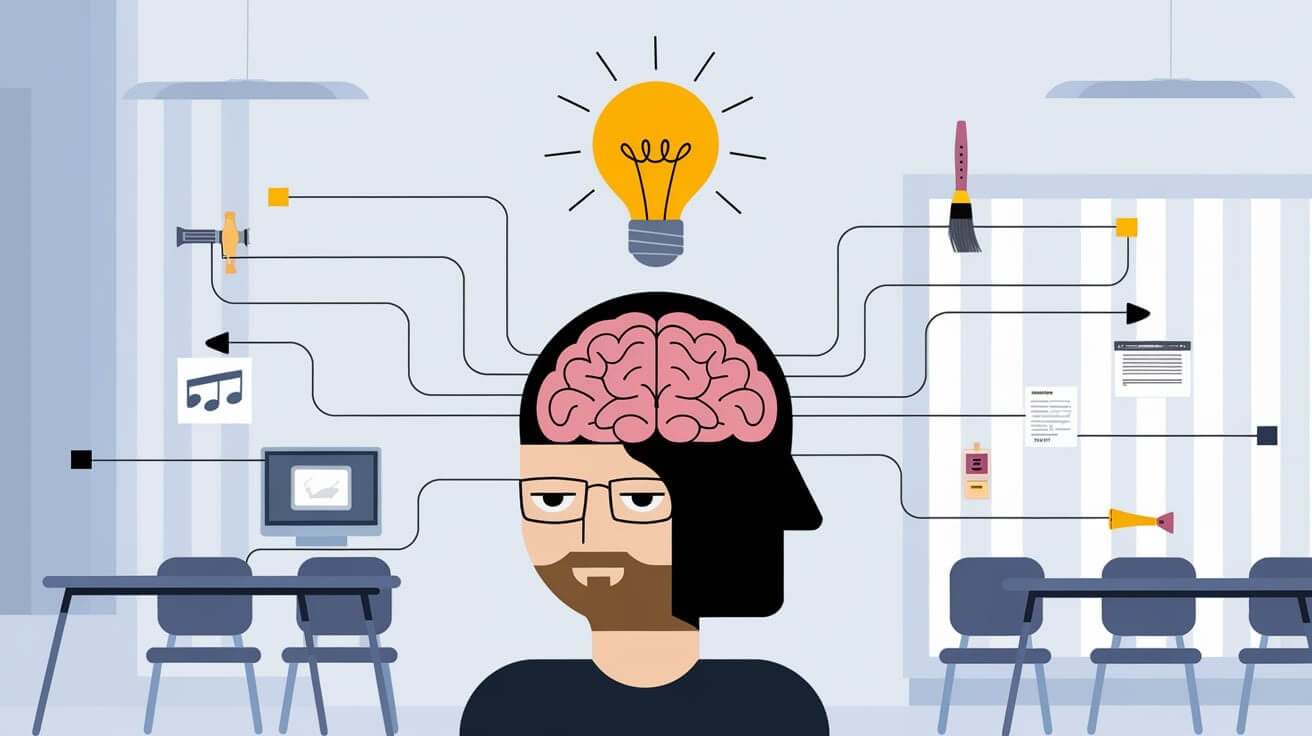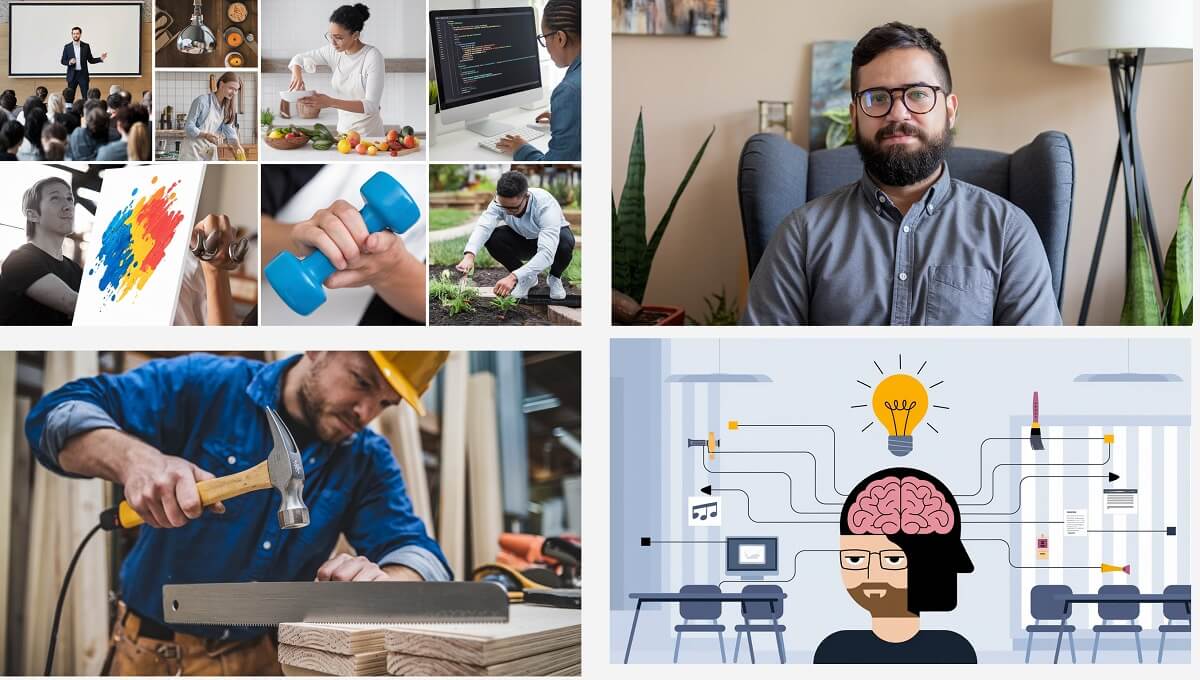
How to Develop Transferable Skills for Career Growth
Introduction
Do you struggle with transitioning between roles or advancing in your career? If so, your transferable skills—those versatile abilities that apply across industries and positions—may need some attention. Whether it’s teamwork, problem-solving, or adaptability, these skills are essential for navigating workplace challenges and achieving long-term career growth.
In this guide, we’ll explore what transferable skills are, why they’re essential for professional success, and how to develop them step by step. By the end, you’ll have a clear roadmap for honing these abilities and leveraging them to unlock new opportunities in your career.
What Are Transferable Skills?
Transferable skills are versatile abilities that can be applied across various roles and industries. These include communication, teamwork, and leadership, essential for working effectively with others and managing tasks. Problem-solving, critical thinking, and decision-making help professionals tackle challenges and make well-informed choices. Time management, adaptability, and organization are crucial for handling responsibilities efficiently in dynamic environments. Emotional intelligence, interpersonal skills, and conflict resolution foster strong relationships and a positive work atmosphere.
Skills like digital literacy, creativity, and strategic thinking are valuable for navigating modern workplaces and driving innovation. Project management, negotiation, and multitasking enable professionals to handle multiple priorities and achieve goals effectively. Research and analysis, attention to detail, and data interpretation are indispensable for informed decision-making and accuracy. Writing skills, public speaking, and presentation abilities ensure clear and persuasive communication, while active listening strengthens collaboration.
Networking, coaching, and mentoring support personal and professional growth, while customer service and collaboration enhance team dynamics. Finally, budgeting and financial management are critical for resource allocation and organizational success. These transferable skills form a robust foundation for career development and adaptability.
Examples of Transferable Skills
-
Communication: Writing clear emails, delivering presentations, and active listening.
-
Teamwork: Working alongside teammates to accomplish shared objectives.
-
Problem-Solving: Finding solutions to workplace challenges.
-
Leadership: Motivating teams and making strategic decisions.
-
Adaptability: Learning new systems or adjusting to organizational changes.
Why They Matter
These skills enhance your flexibility and employability, making you a stronger candidate for diverse job opportunities.
Data Insight: A LinkedIn survey found that 85% of career success is attributed to transferable solid skills like collaboration and communication.

Why Are Transferable Skills Crucial for Career Growth?
Transferable skills serve as the foundation for navigating a dynamic job market. Employers value them because they demonstrate your ability to effectively handle various tasks and challenges.
Key Benefits
-
Career Flexibility: Enables smooth transitions between roles or industries.
-
Improved Employability: Many hiring managers prioritize transferable skills over technical expertise.
-
Future-Proofing: Keeps you competitive in a changing workforce.
According to SHRM, 72% of hiring managers prioritize transferable skills when evaluating candidates.
Identifying Your Existing Transferable Skills
Before you develop new skills, you must identify the ones you already have.
Step 1: Reflect on Past Experiences
-
Consider projects where you’ve demonstrated teamwork, leadership, or creativity.
-
Example: If you’ve managed a team, you’ve likely used problem-solving and organizational skills.
Step 2: Seek Feedback
-
Ask colleagues, mentors, or supervisors for insights into your strengths.
-
Example: A manager might highlight your ability to stay calm under pressure.
Step 3: Use Assessment Tools
-
Tools like LinkedIn Skills Assessment and StrengthsFinder can help pinpoint your key abilities.
How to Develop Transferable Skills
Transferable skills are the backbone of career success. These versatile abilities, such as communication, problem-solving, and teamwork, can be applied across industries and roles, making them essential for career growth and adaptability. Developing these skills requires intentionality, practice, and a willingness to step outside your comfort zone.
Here is a practical, step-by-step approach to building transferable skills that can elevate your professional journey.
Step 1: Reflect on Your Current Skills
Before diving into skill development, it’s crucial to understand your starting point. Reflection allows you to identify the transferable skills you already possess and areas for improvement.
How to Reflect:
-
Analyze Past Roles: Look at your previous jobs, volunteer work, or academic experiences. Consider the tasks you excelled at and the skills they required.
-
Example: If you’ve consistently led team meetings, you likely have strengths in communication and leadership.
-
-
Seek Feedback: Ask colleagues, mentors, or supervisors about your strengths and areas for growth. Often, others can see qualities in you that you may overlook.
-
Use Assessment Tools: Platforms like LinkedIn Skills Assessment, Myers-Briggs, or StrengthsFinder can provide a structured way to evaluate your abilities.
By understanding your current skill set, you can focus on building the ones with the most impact.
Step 2: Identify In-Demand Transferable Skills
To ensure your efforts are aligned with industry needs, it’s essential to identify the transferable skills employers are looking for. These skills often include:
-
Critical Thinking: Analyzing situations and making informed decisions.
-
Emotional Intelligence: Managing relationships and emotions effectively.
-
Adaptability: Adjusting to new environments or responsibilities.
-
Teamwork: Collaborating effectively with others to achieve goals.
-
Digital Literacy: Navigating tools and technologies used in the modern workplace.
Pro Tip: Research job descriptions in your target field to see which transferable skills are most frequently mentioned.
Step 3: Set Clear Goals
Developing transferable skills requires structure and purpose. Setting clear, measurable goals can help you track your progress and stay motivated.
How to Set Goals:
-
Be Specific: Instead of saying, “I want to improve communication,” try, “I will improve my public speaking skills by giving one presentation monthly.”
-
Make It Measurable: Use metrics to evaluate your growth. For example, you could track how many presentations you give or how confident you feel afterward.
-
Set Deadlines: Assign timelines to your goals. A sense of urgency helps keep you on track.
You can approach skill development with focus and determination by setting actionable goals.
Step 4: Enroll in Learning Programs
Structured learning is one of the most effective ways to build transferable skills. Online courses, workshops, and certifications can provide you with the knowledge and tools to develop new abilities.
Recommended Resources:
-
Communication: Take a public speaking course through Toastmasters or Udemy.
-
Leadership: Enroll in leadership development programs offered by LinkedIn Learning.
-
Critical Thinking: Explore courses in problem-solving on Coursera.
-
Digital Literacy: Learn to use tools like Microsoft Excel, Slack, or CRM software through YouTube tutorials or specific training programs.
Learning programs equip you with practical skills and enhance your credibility when highlighted on your resume.
Step 5: Apply Skills in Real-Life Scenarios
Theory alone isn’t enough—practical application is where real growth happens. Look for opportunities to use your new skills in real-world settings.
How to Practice:
-
At Work: Volunteer for new projects that align with the skills you’re developing. For instance, offer to lead a team initiative if you work on leadership.
-
Through Volunteering: Join community organizations where you can practice skills like event planning, communication, or problem-solving.
-
In Everyday Life: Organizing a family event or helping a friend with a challenge can reinforce transferable skills.
Regularly applying what you’ve learned ensures that your new abilities become second nature.
Step 6: Seek Feedback and Mentorship
Feedback is a powerful tool for refining your transferable skills. Mentors and peers can offer valuable insights to help you improve and grow.
How to Get Feedback:
-
Request Constructive Criticism: Ask your manager or a trusted colleague for feedback on recent tasks or projects.
-
Observe and Learn: Watch how skilled professionals in your field handle challenges and interact with others.
Mentorship provides guidance and encouragement as you navigate the skill-building process.
Step 7: Join Professional Networks
Networking can play a pivotal role in skill development. Engaging with professionals in your field exposes you to diverse perspectives and experiences.
Networking Tips:
-
Attend industry events or webinars to learn about best practices.
-
Join LinkedIn groups related to your area of interest.
-
Participate in workshops or discussion panels to gain hands-on insights.
Surrounding yourself with driven professionals motivates you to continuously improve your skills.
Step 8: Track Your Progress
Keeping track of your growth ensures you stay on course and celebrate milestones.
How to Track:
-
Create a Skill Log: Maintain a journal or digital tracker to record your achievements.
-
Review Periodically: Revisit your monthly goals to evaluate progress and make adjustments.
-
Celebrate Milestones: Acknowledge your successes, no matter how small.
Tracking progress not only builds confidence but also reinforces the value of your efforts.
Step 9: Stay Consistent and Committed
Developing transferable skills is a journey, not a destination. Consistency is key to maintaining and growing these abilities over time.
Tips for Consistency:
-
Dedicate time each week to skill-building activities.
-
Reflect on how these skills are benefiting your career and personal life.
-
Stay curious and open to learning new things.
Commitment to growth ensures your skills remain relevant and sharp.
Top Transferable Skills Employers
Critical Thinking
-
The skill to evaluate scenarios and make well-thought-out choices.
-
Example: Using data to optimize team workflows.
Emotional Intelligence
-
Managing emotions to build better relationships.
-
Example: Resolving conflicts diplomatically in team settings.
Adaptability
-
Thriving in new roles or adapting to technological advancements.
-
Example: Learning a new project management tool during a role change.
Digital Literacy
-
Proficiency in tools like Microsoft Excel, Google Workspace, and Slack.
-
Example: Using analytics software to measure campaign success.
Insight: A LinkedIn Workplace Report highlights adaptability and emotional intelligence as top skills for 2024.
Real-Life Examples of Transferable Skills in Action
Case Study 1: Teacher to Corporate Trainer
-
Skills Leveraged: Public speaking, curriculum design, and empathy.
-
Outcome: Successfully transitioned to a new industry by demonstrating these abilities.
Case Study 2: Sales Executive to Marketing Manager
-
Skills Leveraged: Communication, customer relationship management, and creativity.
-
Outcome: Enhanced team performance and increased client engagement.
Ways to Showcase Transferable Skills in Your Resume and Interviews
Crafting a Skill-Focused Resume
-
Use action verbs: “Led a team to achieve 15% revenue growth.”
-
Tailor transferable skills to the specific job description.
Mastering Interviews
-
Structure your answers using the STAR Method (Situation, Task, Action, Result).
-
Example: “When leading a cross-functional team, I used problem-solving and collaboration skills to complete the project ahead of schedule.”
Overcoming Challenges in Developing Transferable Skills
Challenge 1: Limited Time
-
Solution: Use micro-learning tools like Blinkist to gain knowledge in short bursts.
Challenge 2: Fear of Failure
-
Solution: Start small—take on low-risk projects to build confidence.
Challenge 3: Lack of Resources
-
Solution: Seek out free resources like YouTube tutorials or community workshops.
Tip: Break your goals into manageable steps to maintain momentum.
Conclusion
Transferable skills are the building blocks of a successful career. By identifying your strengths, committing to growth, and applying these abilities strategically, you can unlock endless opportunities.
Final Takeaway:
Start small. Focus on improving one skill this month—communication, problem-solving, or adaptability. Over time, these incremental changes will lead to significant career growth.
FAQs
1. What are transferable skills?
They are versatile communication, problem-solving, and teamwork abilities that apply to various roles and industries.
2. Why are transferable skills essential?
They enhance employability, flexibility, and adaptability, helping professionals succeed in diverse roles.
3. How can I develop transferable skills?
Take courses, practice in real-world situations, and seek mentorship to hone these abilities.
4. Which transferable skills are in demand?
Critical thinking, emotional intelligence, adaptability, and digital literacy are top priorities.
5. How do I showcase transferable skills in job applications?
Highlight them in your resume using specific examples and structure your interview answers using the STAR method.
Life Skills Transferable Skills

